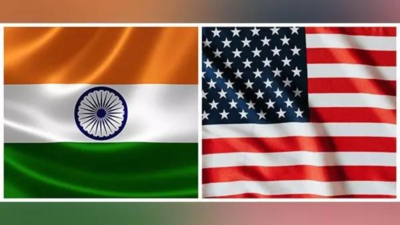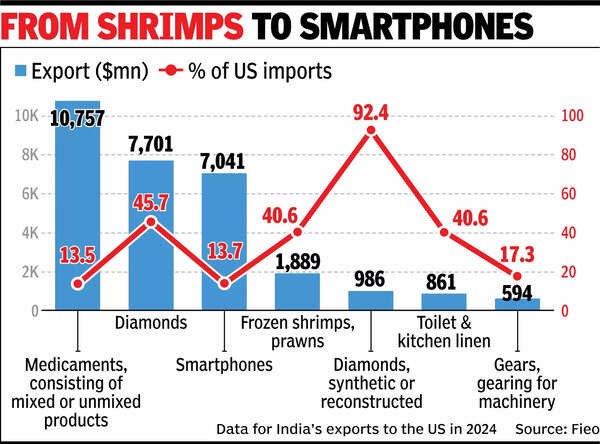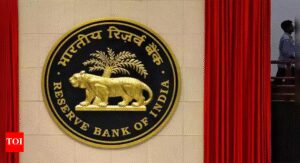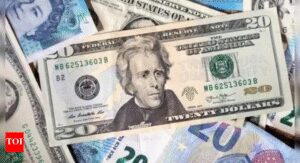
MUMBAI: Trade body Federation of Indian Export Organisations (Fieo) has identified over 300 “high potential items” for exports to the US, highlighting areas, where the government may want to push for tariff cuts. Overall, Fieo has identified 408 items that are commercially important and strategically stable, accounting for over two-thirds of India’s exports to the US. It has suggested trade facilitation and export promotion efforts for these items.The products range from frozen shrimps and pharmaceuticals to smartphones and diamonds, carpets, toilet linen, milled rice, and natural honey. While some of these items have a significant share of India’s exports, such as medicines, India has a large share of the market for products like shrimps, accounting for over 40% of American imports. In contrast, an item like honey is a small fraction of India’s overall exports, pegged at $86.5 billion last year, but it is again a quarter of all shipments into the US.

The list also includes several textiles products, leather goods, footwear, chemicals, engineering goods, and electric and electronics goods, where Indian exporters have traditionally been strong.In its negotiations, the government has already demanded tariff concessions for several products, especially labour-intensive ones. Besides, in several cases, such as shrimps and carpets, based on the reciprocal tariff of 26% earlier announced for India, exports would become less competitive as rivals enjoyed a significant edge. A team of Indian negotiators led by Rajesh Agarwal, special secretary in the commerce department, will hold talks with American officials as part of efforts to get a favourable deal for India before Trump’s tariffs kick in from Aug 1.Apart from the uncertainty over a trade deal, especially with India insisting on holding back concessions for several farm goods and dairy products, negotiators face additional challenges with Trump mounting further pressure by threatening additional duties on countries that align with Brics or buy oil from sanction-hit Russia. Besides, a section within the government has said that the tariff demands from the Trump administration are not clear.














